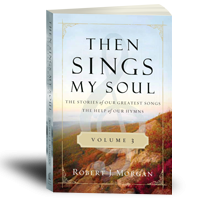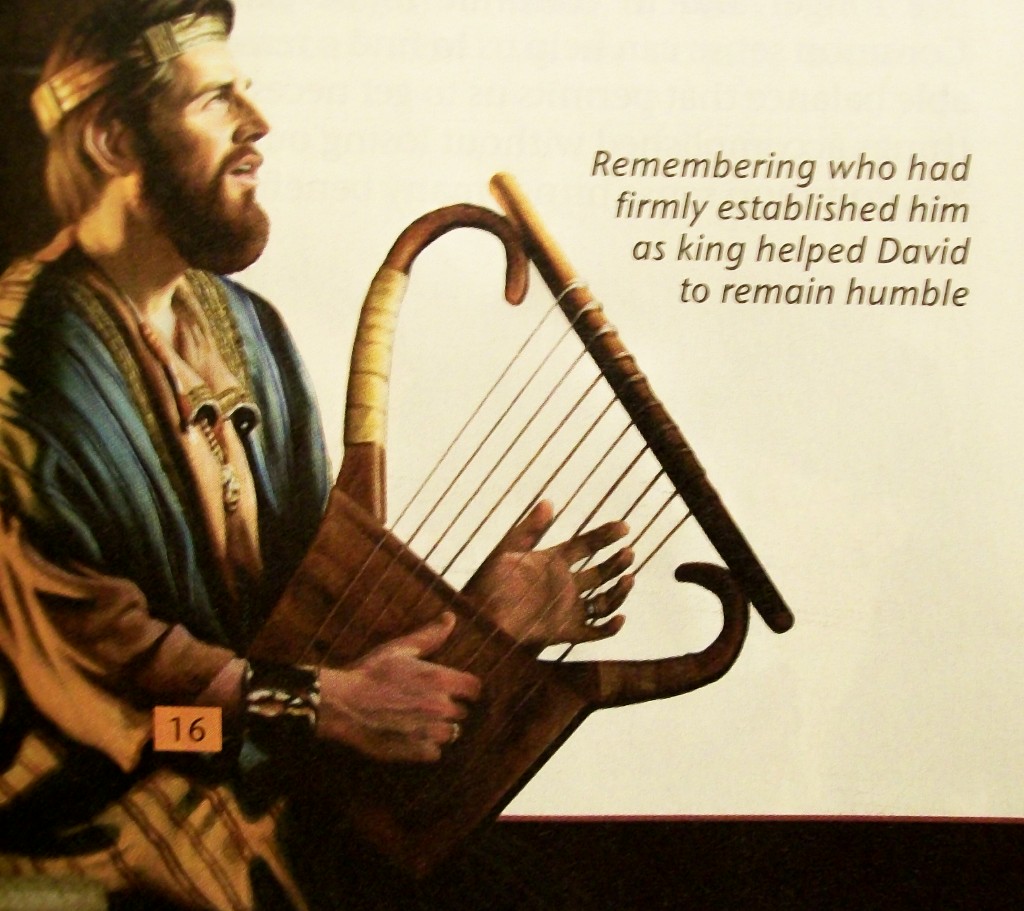For the next few months articles will be shared from the research of my uncle, Richard Dent. He and his wife live in Kansas where he has served in the educational system for more than 40 years. Yet more than educating young people, he serves as a part-time preacher for the Tyrone church of Christ in Tyrone, Oklahoma. This article is one he recently shared with me as we talked about hymn history.
In his book, Then Sings My Soul (book #3), Robert J. Morgan takes his readers back to the very beginnings of music from God’s people…the Israelite nation.
The first reference of music in the Bible is found in Genesis 4:21, when a man named Jubal is described as the ‘father’ of all who play the harp and flute. The first recorded ‘hymn’ in the scriptures can be found in Exodus 15, after God’s people escape the Egyptian army through the parted waters of the Red Sea. Moses and his people drew up the story in the form of a song that could be easily learned and spread among the people. It began with the words, “I will sing to the Lord, for He is highly exalted. The horse and its rider He has hurled into the sea.” Exodus 15:21 describes the exuberance of the moment saying, “Then Miriam the prophetess, Aaron’s sister, took a tambourine in her hand, and all the women followed her, with tambourines and dancing.” And Miriam answered them, “Sing to the Lord, for He has triumphed in gloriously; the horse and its rider He has thrown into the sea.”
Unfortunately, the next time we see the Israelite nation in song, it’s in a sensuous idolatry around a golden calf. While Moses was on Mt. Sinai receiving the Ten Commandments, Aaron was compelled by the people to craft an idol of gold. The idol was similar to that of the Egyptian worship and far from the expectation of Jehovah God. In their idolatry, the desert erupted with the sound of singing and revelry. Moses heard the strains of music from a distance and realized the sin of the people. The Israelite nation had broken the first commandment, “Thou shalt have no other Gods before me.”
By the time we get to the book of Deuteronomy, the old Law Giver (Moses) is again teaching God’s people the songs of Jehovah. We read in Deuteronomy 31:30 through 32:3, “And Moses recited the words of this song from beginning to end in the hearing of the whole assembly of Israel: ‘Listen, Oh heavens, and I will speak; hear, O earth, the words of my mouth. Let my teachings fall like rain, and my words descend like dew, like showers on new grass, like abundant rain on tender plants. I will proclaim the name of the Lord. O praise the greatness of our God!’.”
Ending his song, Moses advised God’s people to take the words to heart. “They are not just idle words for you”, he said. “They are your life…” (Deut. 32:46-47) He was describing not only the nature of God’s Word, but the character of his hymn represented God’s Word as it was crafted for singing.
 In the rest of the historical books of the Old Testament, we find a many poems, hymns and ballads sprinkled throughout the text. Examples include Deborah’s song in Judges 5, the worship in song at the restoration of the temple under King Hezekiah’s reign (2 Chronicles 29), as well as David and his illustrious, musical, life-story. David’s early life as a shepherd is where he likely wrote many of the Psalms. David was a valiant shepherd, a talented poet, a great musician and a noble king. He launched and formalized the ministry of music in or around the year 1000 B.C. He employed thousands of musicians and then personally wrote many of the hymns for them to sing and play. Scores of these are preserved in the book of Psalm – the Hebrew hymnal.
In the rest of the historical books of the Old Testament, we find a many poems, hymns and ballads sprinkled throughout the text. Examples include Deborah’s song in Judges 5, the worship in song at the restoration of the temple under King Hezekiah’s reign (2 Chronicles 29), as well as David and his illustrious, musical, life-story. David’s early life as a shepherd is where he likely wrote many of the Psalms. David was a valiant shepherd, a talented poet, a great musician and a noble king. He launched and formalized the ministry of music in or around the year 1000 B.C. He employed thousands of musicians and then personally wrote many of the hymns for them to sing and play. Scores of these are preserved in the book of Psalm – the Hebrew hymnal.
Thanks to Richard Dent for his summary of this interesting Old Testament Hymnology.

